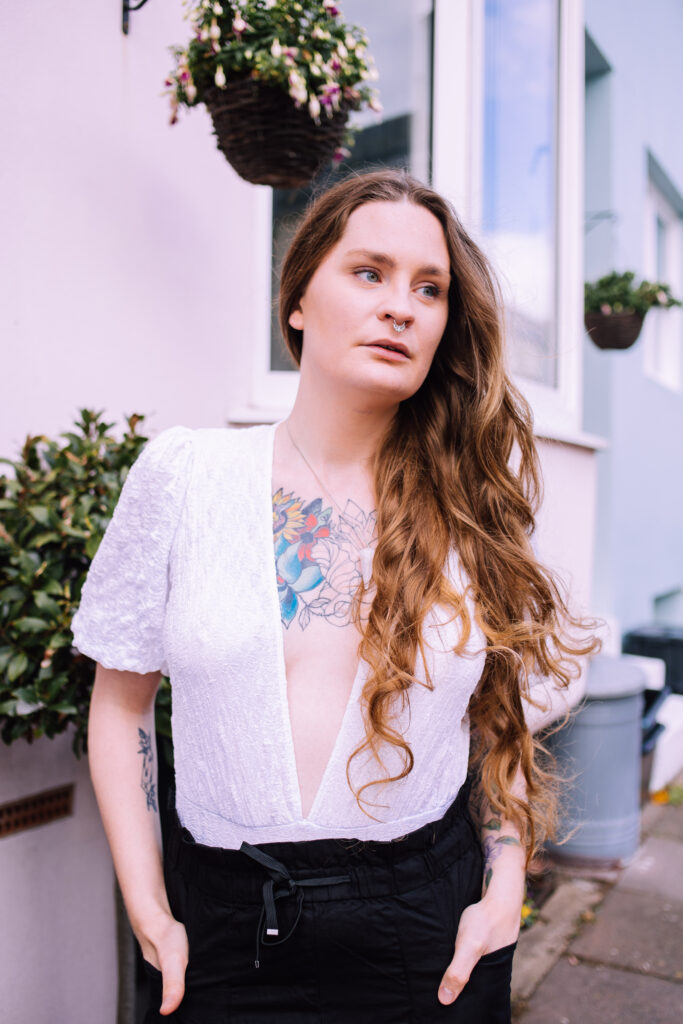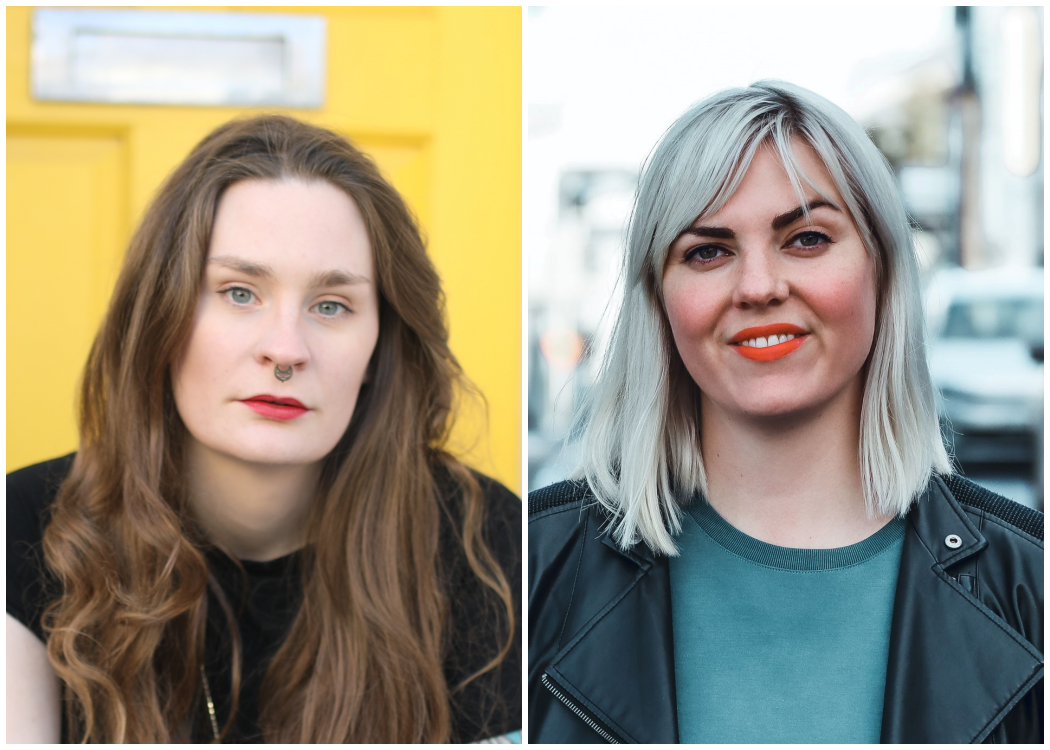The Reykjavik City Council has issued and implemented some important guidelines with the aim of making the life of trans people easier in public spaces.
Since the Gender Autonomy act was passed in 2019, anyone in Iceland can change their official gender registration according to their gender identity without having to undergo any medical treatment and should therefore be given access to spaces suited for their gender regardless of their passing. This includes changing rooms, toilets and showers in all spaces, public or private. As expected, it has unfortunately stirred up quite a bit of controversy lately. To help the staff of the many swimming pools and sports venues in Reykjavik handling any issue that might arise and ultimately make the life of trans people easier in public spaces, the Reykjavik City Council is has issued and implemented some important guidelines.
Dóra Björt Guðjónsdóttir, member of the Reykjavik City Council for the Pirate Party and chair of the Human Rights, Innovations and Democracy Committee who’s played a leading role in the making of the guidelines, along with Ugla Stefanía Kristjönudóttir Jónsdóttir, chair of Trans Iceland who’s been involved in the process, tell us more about the guidelines and their expected impact, share their perspectives on the challenges still ahead and what they have in mind to overcome them.
Ugla, do these guidelines go far enough in your opinion?
“The guidelines are an incredibly good start in addressing the discrimination some of our members have experienced in the past from staff and other guests at public pools. We think it’s incredibly important that the staff is educated and trained to deal with these issues, and is equipped with knowledge on how to handle these types of situations without trans people being harassed or discriminated against.
It’s in line with kynrænt sjálfræði (the gender autonomy act), and it’s important that Reykjavíkurborg is making sure they are following the law and making sure trans people are able to use their facilities without fear of discrimination.”

What’s still missing in your opinion to make life easier for trans people in public spaces (and private as a matter of fact)?
“Guidelines and policies are one thing, but implementation is another. So in my mind this is only the first of very many steps that they need to take in order to ensure safety and access for everyone to swimming. I have faith that Reykjavíkurborg is committed to this, and I know Dóra Björt in particular has been incredibly outspoken in her support for equal rights and access for everyone.
In my mind there needs to be a constant reminder and work to continue making spaces safer. Inclusion and education never really ends, and we need to constantly keep going. We still have a long way to go to eradicate prejudice and stigma, and places that offer services need to continue making it clear that they won’t tolerate harassment, discrimination or prejudice so that we can create spaces where everyone is welcome and safe.”
“In my mind this is only the first of very many steps that they need to take in order to ensure safety and access for everyone to swimming.”
What shouldn’t be forgotten in the content and implementation of the guidelines?
“We need to remember that we are all different, and the transgender community is a huge community with different needs. All these needs should be accommodated and dealt with appropriately, and what’s important to remember is precisely that diversity. Guidelines are great for guidance, and the people implementing them need to be confident in their knowledge and sensitivity to be able to be guided by them, but also to use them as tools in their work and make sure they are doing what is best at any given time.”
Dóra, can you sum up the guidelines to be issued by the Reykjavik City Council regarding trans people in swimming pools and sports venues?
“These guidelines are meant to give employees in swimming pools and sports venues means to enforce and enact the Gender Autonomy Act that was passed in 2019.
The guidelines contain relevant terminology and a set of Q&A’s meant to support employees in situations that might be perceived as complex and help them to act according to the law by enforcing the rights of trans people and other gender nonconforming people.
Rights don’t matter if they aren’t enforced and that’s what this is about.”
What prompted you to take action?
“Our clear stand on trans people in gendered locker rooms has its roots at the beginning of this election term. Back then the Committee I chair had decided to start working on increasing the access of all genders to city spaces when a trans man contacted us and said he didn’t feel comfortable using the men’s locker room in his local swimming pool. At that time he had not undergone any medical treatment. We have to remember that not all trans people want to undergo any surgery or medical treatment. We can’t make invasive medical treatments a condition for human rights.

Long story short, we wanted to help, started to work on it but then the Gender Autonomy Act was passed, which helped us. It makes it clear that every individual can change their gender registration without having to go through any procedure or medical treatment and should be treated according to their official gender identity. Which means it is clear that trans women can use the women’s lockers and trans men the men’s lockers regardless of sex-based characteristics.
The next step is making the general public and everyone involved aware of this. Knowledge is a powerful weapon against prejudice.”
How well has this project of guidelines been received by the public opinion so far?
“I think most people are positive but of course there is some scepticism and a lot of questions and thoughts that need to be addressed. Therefore this open democratic conversation is important. We know that changing the norms of the society can be a bumpy ride but we will get there.”
Does any opposition have arisen as yet? If so, from whom, on which basis?
“I have mostly seen criticism in the commentary sections of online news regarding this subject and in discussions on Facebook. I basically think some people become insecure, which is common when society is evolving. Some people wonder why trans people can’t just use the gender neutral extra locker rooms we have now installed in all swimming pools in Reykjavík. Some trans and gender nonconforming people choose to use these gender neutral locker rooms but it is not suitable for everyone and people have the right to decide for themselves.
“A trans man contacted us and said he didn’t feel comfortable using the men’s locker room in his local swimming pool. At that time he had not undergone any medical treatment.”
We hear a lot of detractors basing their arguments on myths and fantasies that aren’t supported by facts as experience and research shows. One argument that is common in this debate is that cis men will start going to women’s locker rooms pretending to be trans women. This is a classic argument in discussions where laws and rules are being changed to further the human rights of trans people giving them more access to gendered areas, but all experiences show us that this really isn’t happening. So just another myth, in fact.
Myths and fantasies are being used to try to exclude trans people and it’s not okay.”
Do you plan on extending these guidelines to other public spaces like schools, gymnasiums, etc.? Does the Council have the authority to do so in private spaces as well (private gyms for example)?
“They are based on the law so it’s not really our decision to implement these procedures as they are a legal obligation. They are just a tool to do so in a good manner and are meant to be used by the whole Department of Sport and Leisure in the city and we will look into further steps along the way. We do not have authority on private spaces but the law is still the law so they might have to follow similar procedures I assume and they are welcome to use these guidelines if they’d like to.”
Have you been in touch with other City Councils elsewhere in Iceland in hope to generalize these guidelines?
“These guidelines will be available online for everyone who’d like to use them. Other municipalities are of course welcome to do so and we’d be very happy to help and contribute to making lives of trans and gender nonconforming people better everywhere in Iceland.”
Any other plans to make life easier for trans people in the near future?
“We are continuously working on increasing the life quality of trans and LGBTQ+ people. Soft power can often be the most effective tool which in this case is knowledge. We are using information and education to create space for diversity.
We recently started our Rainbow certification program to encourage Reykjavík workplaces to become more LGBTQ+ friendly.
We made the toilets within our city administration buildings gender neutral and are working on getting the government to change old regulations in accordance with the Gender Autonomy Act for us to be able to keep the toilets that way.
We focus a lot on education and information for the schools. We have made a check list and an information site about trans children in schools and kindergartens. Also we have a gender support plan meant for guiding schools towards the best possible service and support for trans children. There is a group working on ways to increase gender and LGBTQ+ education in the school system and another planning an awareness campaign regarding minorities and the value of a diverse society.
So lots and lots. We don’t take human rights lightly in this city.”
This article is brought to you by GayIceland and sponsored by the city of Reykjavík.


